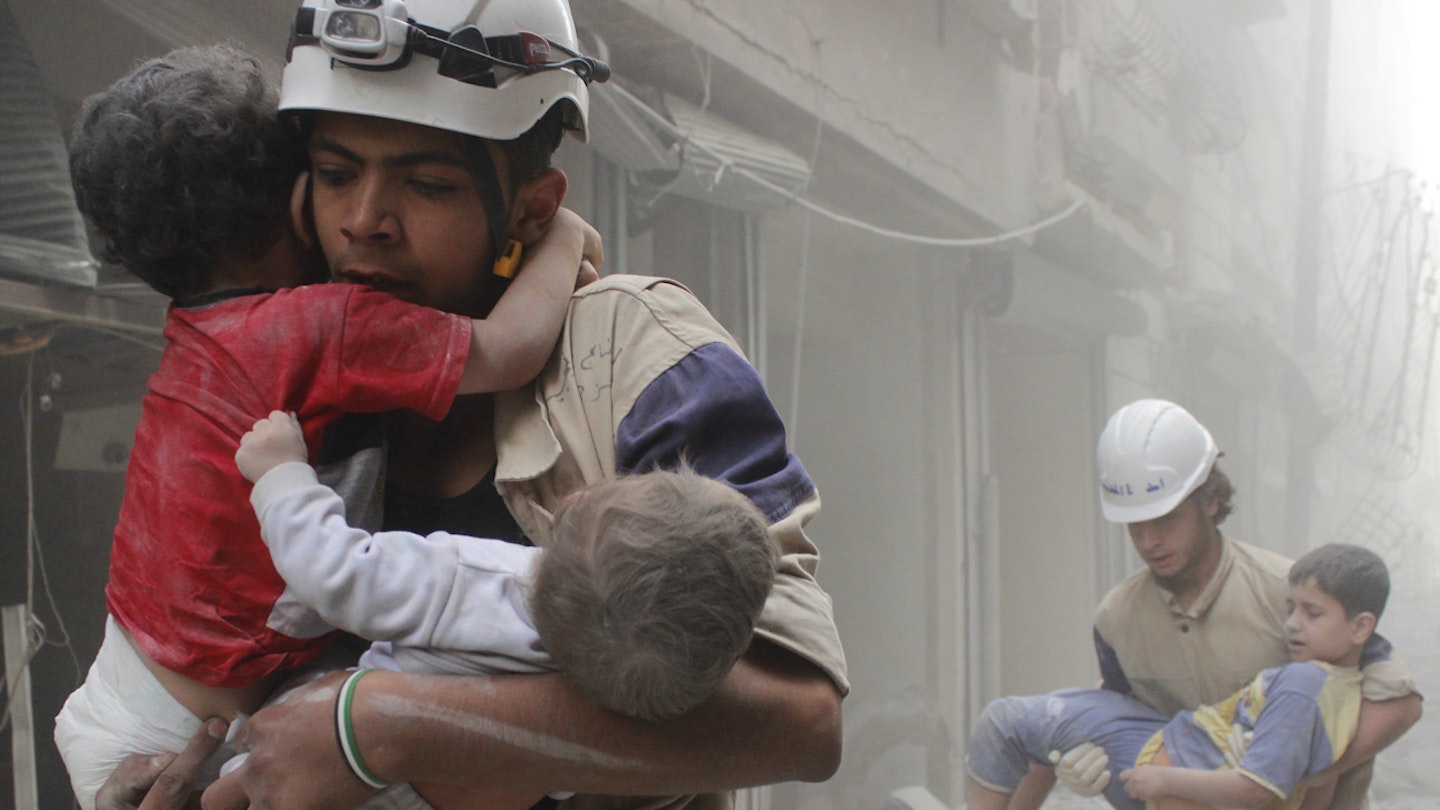Saturated with shocking imagery, this documentary from Cartel Land director Matthew Heineman also has a deep sadness and compassion at its core. This is an important film that confirms Heineman’s position as one of America’s finest documentary filmmakers — and he’s still only 33.
Aside from its appetite for extreme brutality, one of the most remarkable things about ISIS is its slick media operation. Much has been made of the Hollywood-style production values of their snuff propaganda, but the aesthetic is far more along the lines of Call Of Duty cut scenes — savvy, given the alienated young men they aim for.
An important film that confirms Heineman’s position as one of America’s finest documentary filmmakers.
In opposition, RBSS, a group of activists who now live in exile from Syria, have built up a network of citizen journalists in ISIS capital Raqqa who use encrypted signals to get videos, photos and news out to the world. We follow four activist reporters — who are up against thousands of jihadis and their supporters — over a number of months as they are forced to flee Turkey for safety via a succession of German safe houses and an incredible, incongruous awards do in New York.
Countering the hype that ISIS spread about their caliphate as a flourishing statelet of theological purity, the footage RBSS circulates reveals a nightmarish world of public executions (including crucifixions), abject poverty and hunger, and the indoctrination of the young.
In a film full of graphic footage it’s this brainwashing that stands out. A scene of a child aged about four years old in full combat garb merrily beheading a teddy bear is more unsettling than any horror movie — and that’s in the middle of a charnel house of a film.
City Of Ghosts isn’t only about how revolting ISIS’ methods are. This is something that we already know — and if you haven’t seen any footage of their atrocities, maybe don’t Google it. Sadly, the normalisation of viewing frightened men in orange jumpsuits with moments to live will be one of ISIS’ lasting legacies. Instead, beyond the atrocity montages, this is one of the most moving portraits of real-life courage you’ll ever see. Journalism may give itself a bad name in some quarters, but the RBSS reporters highlighted here are the real deal, putting their lives on the line in a way few others have been willing (or, to be fair, able) to do.
The threats are real, too: two of their number were killed in 2015, one in the supposedly ‘safe’ environs of Turkey. In one particularly chilling moment, two members watch a video of their own father’s execution.
Sharing anxious conversations with Syrian contacts over scratchy connections, their operation is small, dedicated and totally without bombast. There is little of the speechifying about epochal evil that Western journalists might succumb to, instead a quiet professionalism that’s quite astounding in the face of such extremity. They can be endearingly goofy, too, spending one scene marvelling at Berlin’s sex shops.
In the film’s closing moments, the cost of their bravery becomes clear. After reflecting on how few of their sources are likely to survive, one member has a panic attack, his body shaking uncontrollably with guilt and fear for those he left behind, Heineman’s camera staring at his almost total collapse. If the catastrophe of the Syrian conflict could be condensed into a single moment, it’s this — and it’s unforgettable.
